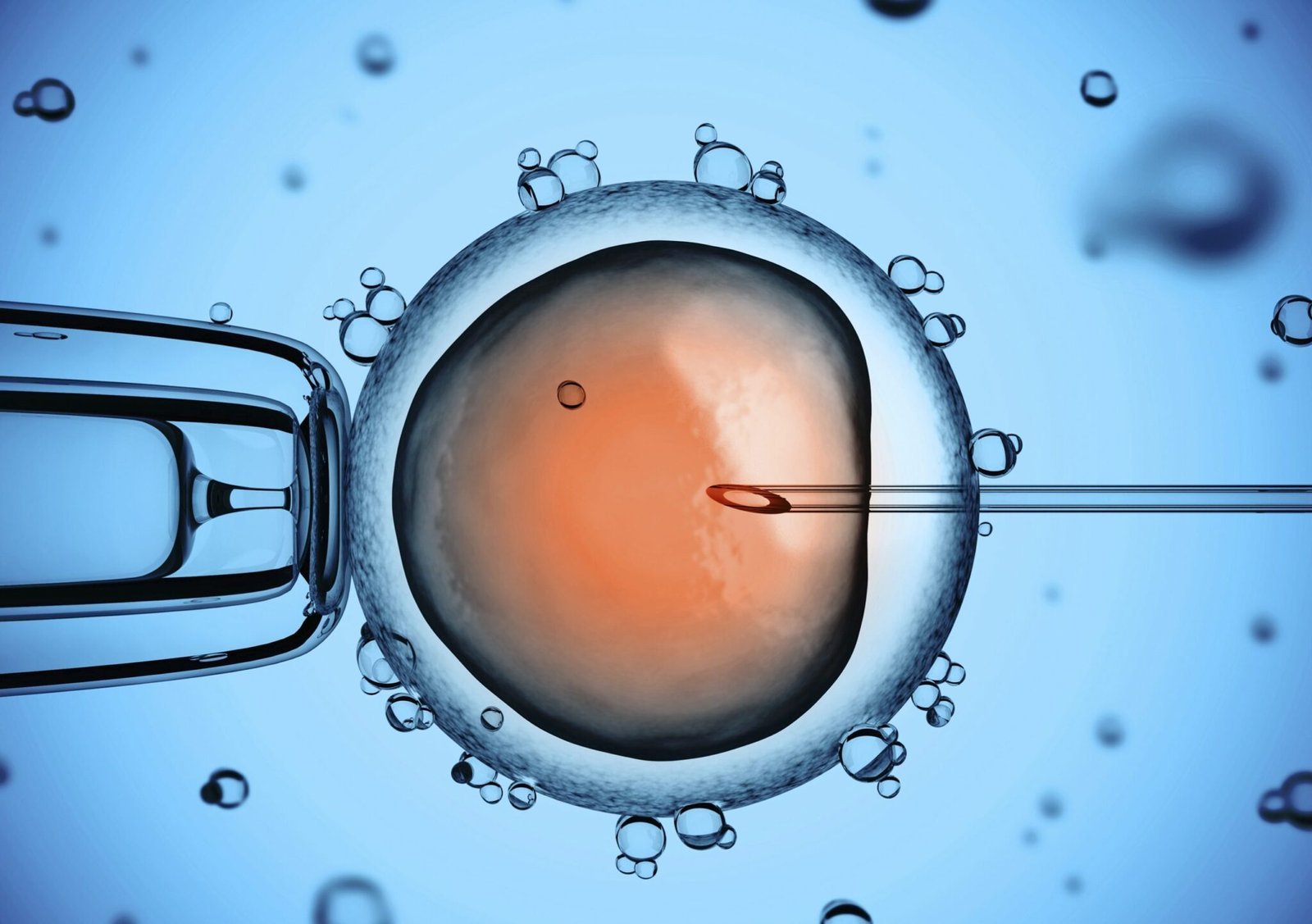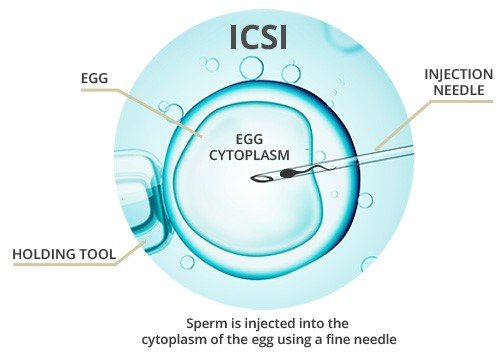
Intracytoplasmic Sperm Injection is a modern process of infertility treatment in Kolkata. Modern-day’s hectic life schedule leads to various complications in one’s life. These complications or stress can affect a person in several ways.
Prolonged exposure to stress with no time to work out as well as unhealthy food habits may increase the body mass index or fat depositions, leading to lower sperm count which is increasing at an alarming rate.
Lower sperm count leads to an inability to fertilize a woman’s egg and prevents the chances of pregnancy. To overcome this, it is advisable to lead a healthy lifestyle with proper food and habits.
This situation can also be overcome by a medical treatment such as In Vitro Fertilization(IVF), which is very common at present.
In IVF treatment 50,000-100,000 swimming sperm are placed next to the egg in a laboratory dish. Fertilization occurs when one of the sperm enters into the cytoplasm of the egg.
But sometimes, the sperm cannot go through the outer layer of the egg, for a variety of reasons, be it the hard outer layer of the egg that prevents the sperm from penetration or may be due to less or non-motile sperm or unexplained fertility.
To overcome these situations, a method has been developed which is known as intracytoplasmic sperm injection (ICSI). In this method, a minute needle, called a micropipette, is used to insert a single sperm into the middle of the egg, directly. In this manner, the chance or percentage of pregnancy gets higher.
Studies said by using the ICSI method, 50% to 80% of eggs can be fertilized as an embryo grows in a laboratory for 1 to 5 days before it is transferred to the woman’s uterus. The first human pregnancy generated by ICSI was carried out in 1991 by Gianpiero Palermo and his team as the report suggests.

But like any other method, ICSI methods also have certain drawbacks or risk factors. First, during the ICSI procedure, a small number of eggs (<5 %) can be damaged as a result of the needle insertion.
Second, the overall risk of having a baby with a chromosomal abnormality in the X or Y chromosomes is 0.8 percent, or eight per 1000, which is four times the average seen with spontaneous conception.
Thirdly, there is not enough evidence to say that ICSI procedures are safe in females with hepatitis B regarding vertical transmission to the offspring.
In general, this procedure can be summarized as stated by the Practice Committee of the American Society of Reproductive Medicine in a position paper that mentioned “ICSI is a safe and effective therapy for male factor infertility.
But may carry an increased risk for the transmission of selected genetic abnormalities to offspring, either through the procedure itself or through the increased inherent risk of such abnormalities in parents undergoing the procedure.
Content Source : Wikipedia
During IVF, you may hear terms like "Grade A embryo," "blastocyst quality," or "ICM and TE grading." Many couples feel...
The IVF journey can be one of the most emotionally intense experiences a couple faces. From hormone injections and medical...
Planning a pregnancy is one of the most meaningful steps in your life — but the journey doesn’t begin only...
Male fertility is closely associated with the health of sperm. A healthy sperm count and strong motility are essential for...
Meet Priyanka, a busy marketing professional. Lately, her periods have become heavy and unpredictable. Cramping disrupts her workday, and she’s...
Role of IVF in Overcoming Infertility Challenges in Endometriosis Endometriosis is an often painful disorder in which tissue similar to...
Journey towards parenthood Infertility and childlessness can be challenging journeys for couples to navigate. The emotional and physical toll of...
The "Save the Sibling" Program "Save the Sibling" program, a collaboration of Renew Healthcare, Cordlife, and HCG EKO offers hope...
What is PCOD? PCOD, also known as Polycystic Ovary Syndrome, is a common hormonal disorder that affects women of reproductive...
Intrauterine insemination aka IUI is a common fertility treatment that many couples opt for having a biological child. The experts...
